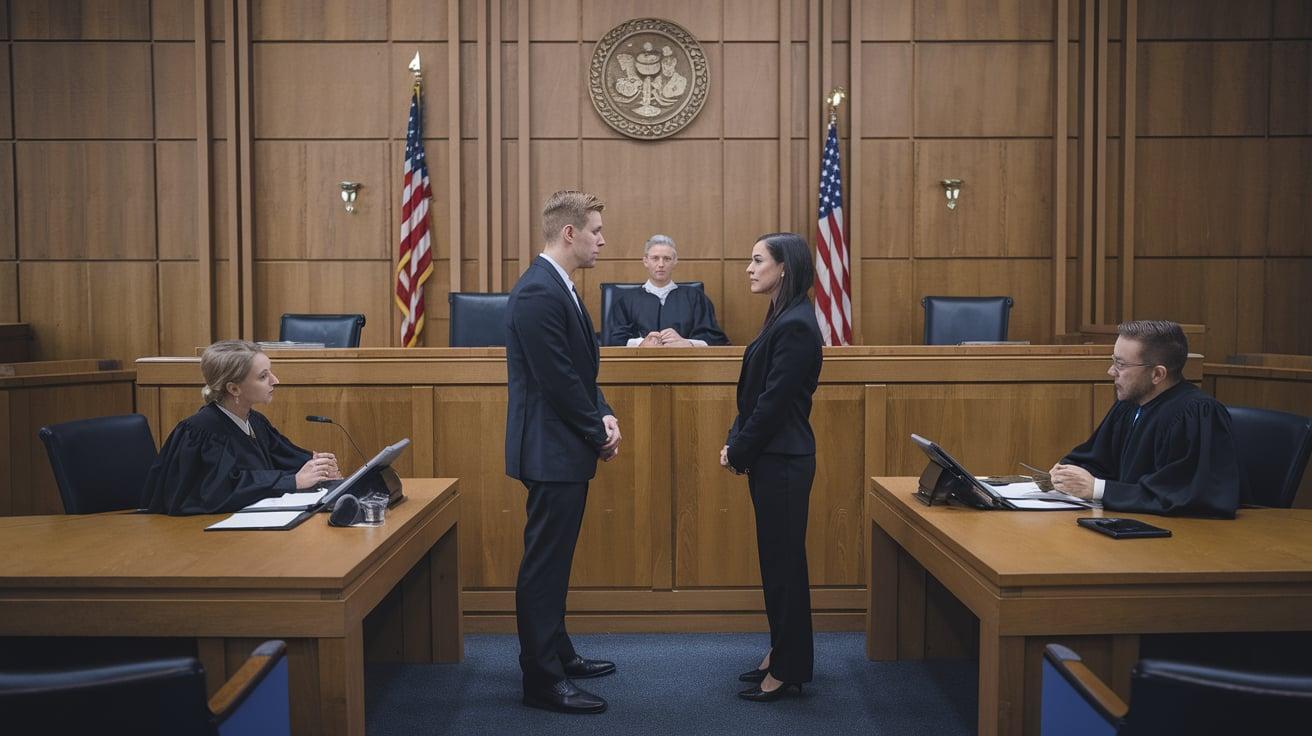Don’t you think it’s a very common question people ask themselves when dealing with a narcissistic spouse whether their partner will ever file for divorce?
Well, the answer involves understanding how narcissists view relationships and what makes them take such a significant step.
Narcissists often stay in marriages that seem unhappy to others because these relationships serve specific needs for control, attention, and social status.
This blog explains the key factors that influence a narcissist’s decision to start divorce proceedings.
Why Narcissists Stay in Unhappy Marriages

Many people wonder why narcissists remain in marriages that seem unpleasant or broken. The reasons often link to their need for power and fear of change.
Let’s look at why they choose to stay:
- Control plays a key role in their choice to stay married. Narcissists feel safe when they can direct their partner’s actions and choices. They often worry about losing this power if the marriage ends. Many keep their partners dependent on them, making it harder for either person to leave.
- Public image matters deeply to narcissists in marriage. They see their relationship status as proof of their success. Ending a marriage might make others think badly of them. They would rather stay in an unhappy situation than face questions or judgment from friends and family.
- Money and time spent also keep narcissists in marriages. If their partner provides financial benefits or a comfortable life, they might stay despite being unhappy.
- Some view their years of marriage as an investment they don’t want to lose, and some view their spouse as something they own rather than as an equal partner.
- Fear of being alone drives many narcissists to stay married. Behind their confident front, they often feel scared of rejection.
- The thought of starting over or showing weakness makes them uncomfortable. They might prefer a difficult marriage to facing these fears.
- Some narcissists believe they can fix any problems in their marriage through force of will. They think staying proves their strength, especially if they can convince others that marriage is fine.
This belief helps them avoid facing the real issues in their relationship.
What are the Behavior Patterns that Influence Divorce Decisions

1. Personal Needs Come First
A narcissistic partner focuses mainly on their own desires. Marriage serves as a tool to fulfill personal needs rather than build a shared life.
Every decision gets filtered through a lens of self-interest, from daily choices to major life plans. This one-sided approach makes true partnership impossible since shared goals never take priority.
2. The Need for Constant Validation
Such individuals expect ongoing praise from their spouses. Once the flow of compliments slows down, thoughts of leaving the marriage begin to surface.
This constant demand for attention drains their partner’s energy and goodwill. Small gestures of appreciation never feel enough, and the spouse feels pressured to give more and more validation.
3. Manipulation Becomes Normal
Facts and memories get twisted to create self-doubt in the other person. Once these tactics stop working, the idea of divorce becomes more appealing.
The spouse starts to question their own memories and judgment about events. Over time, this persistent manipulation creates a deep divide between what each person believes is true.
4. Hot and Cold Pattern
The relationship swings between extreme praise and harsh criticism. This pattern creates confusion and stress for both partners in the marriage.
The spouse never knows which version of their partner will show up each day. Living with these constant mood changes makes building trust or feeling secure in the relationship very difficult.
5. Power Struggles Lead to Exits
As soon as a spouse shows signs of independence, the balance shifts. Filing for divorce often becomes a way to regain control of the situation.
Any attempt by the partner to make their own choices gets seen as a threat. The marriage becomes a battlefield where one person must always win, and the other must lose.
6. Running from Relationship Issues
When faced with problems that need fixing, these partners choose to escape overgrowth. The marriage ends because addressing real issues feels too challenging.
Taking responsibility for mistakes or showing weakness seems impossible. Instead of working through problems together, blame gets placed entirely on the spouse.
7. The Mask Becomes Too Heavy
Playing the role of a perfect partner requires constant effort. When maintaining this image becomes too tiring, ending the marriage seems easier.
The strain of keeping up appearances in public while being different at home creates stress. Eventually, the gap between the public image and private reality grows too wide to manage.
Situations that Could Lead a Narcissist to File for Divorce

Several situations might push a narcissist to start divorce proceedings. Understanding these triggers can help you make sense of their decisions.
Here are the main factors that often lead them to file for divorce:
- Lost control often triggers their choice to end a marriage. When narcissists feel they no longer run the show, they might file for divorce. This happens when their spouse starts making choices without their input or stops asking for their permission.
- Their partner’s growing strength can spark divorce plans. If their spouse begins setting limits or saying “no” more often, narcissists often feel threatened.
- They might choose divorce when their partner starts doing well on their own or builds a life outside the marriage.
- Lack of praise from their spouse can lead to divorce. Narcissists need constant approval and attention. When their partner stops giving them regular praise or seems less interested in their achievements, they might look for someone new who will admire them more.
- Outside threats sometimes push them toward divorce. If they think their spouse might leave them for someone else, they often file first. They’d rather end the marriage themselves than risk being left behind. Their fear of looking bad at others can also drive this decision.
- Some file for divorce when they find someone new. They might see a potential partner who seems more suited to give them what they want. This could mean someone with more money, better social connections, or someone who shows them more attention.
How Narcissistic Traits Affect Divorce Choices

When a narcissist thinks about divorce, many factors come into play. These decisions often involve more than just wanting to leave.
- The legal process worries many narcissists. They often put off filing for divorce because they don’t want the courts telling them what to do.
- Some feel scared about losing their money or property in the split. This fear can make them stay longer than they planned.
- Children add another layer to their choice. Some narcissists worry about how others will see them if they leave their kids. They can also use their children to get what they want by promising gifts or special treatment.
- The timing of divorce matters a lot to them. Many wait until they have a backup plan ready. This could mean saving money in secret or making sure they have somewhere else to live.
- If they’ve spent years building a business with their spouse or sharing financial duties, they might hesitate to split things up. Some worry about losing access to their partner’s family connections or social circles.
Their own fears can slow down their choice. Despite seeming confident, many narcissists worry about being alone. They might delay divorce until they’re sure they can handle life without their current partner’s help.
This inner struggle often makes their decision more difficult than it appears.
Conclusion
Understanding when and why narcissists file for divorce helps make sense of their choices. While they often stay in unhappy marriages for control, status, or comfort, certain triggers can push them to end the relationship.
These include patterns like:
- Losing power over their spouse
- Feeling their image is at risk
- Finding someone new who promises more attention
If you’re dealing with a narcissistic spouse, knowing these patterns can help you prepare for possible outcomes.
Remember that their decisions often stem from self-interest rather than emotional connection.
Frequently Asked Questions
How Does a Narcissist React When You File for Divorce?
A narcissist often responds with anger, threats, or attempts to control the situation. They might spread rumors, try to turn others against you, or switch between begging you to stay and acting cruel.
How Do You Outsmart a Narcissist in a Divorce?
Keep all communication in writing. Save evidence of their behavior. Don’t react to their attempts to upset you. Work with a lawyer who knows about narcissistic behavior. Stay focused on facts rather than emotions.
How Do You Peacefully End a Relationship with a Narcissist?
Set clear boundaries and stick to them. Keep conversations short and business-like. Don’t share personal information. Have a support system ready. Avoid arguing or trying to explain your reasons.








